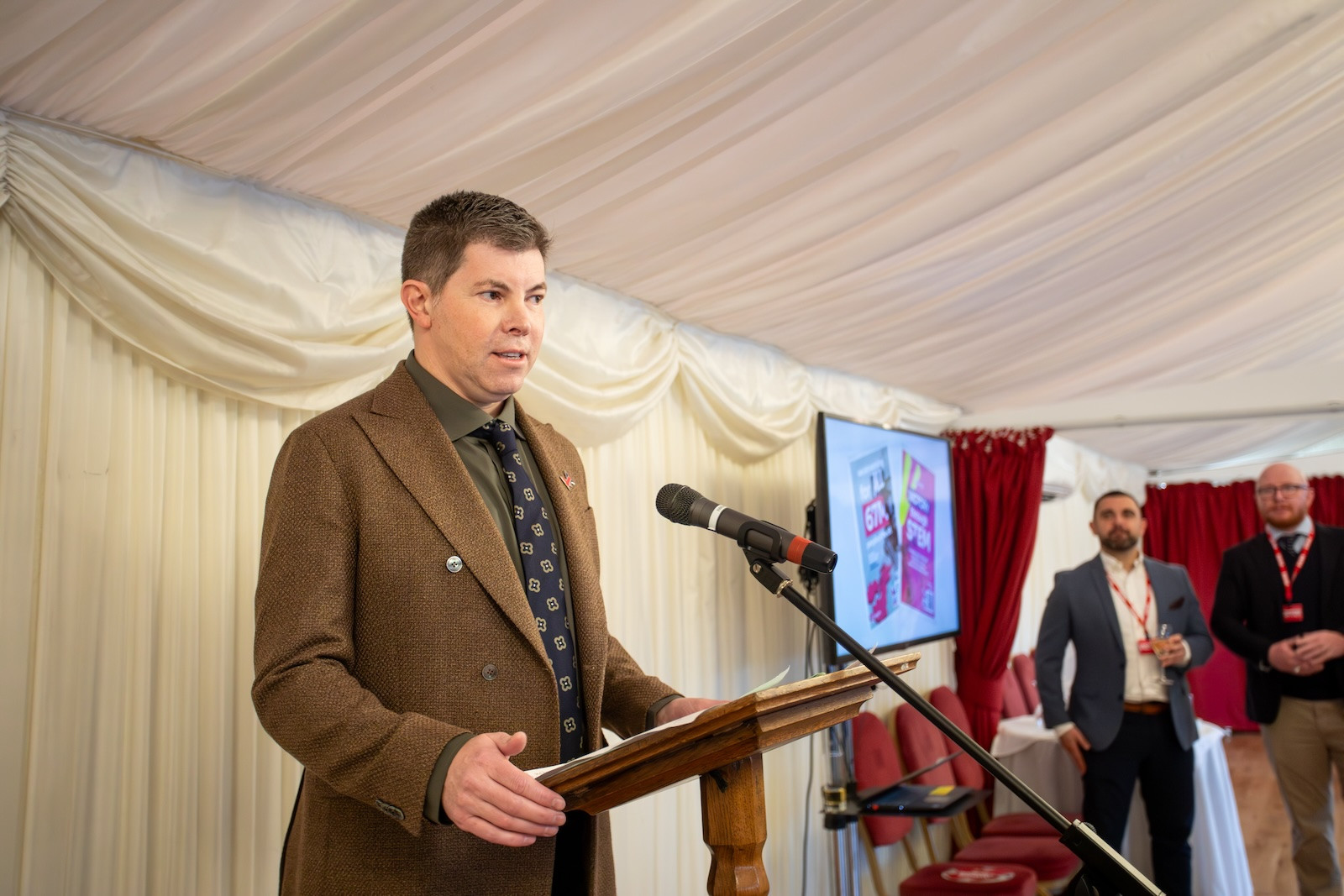State of the Unions

Is class becoming the next workplace battleground?
How resentment, rhetoric, and culture are quietly colliding in today’s workforce
By Jason Pitt
A few months ago, I was on my way to Westminster to meet our Chairman, Lord Whitby.
I passed Unite the Union’s Holborn HQ. In the window, a bold digital message glared back at me, enormous red and black lettering, jagged and urgent, almost like it had been scrawled in protest ink
“PROFITS ARE UP. WAGES ARE DOWN. INFLATION IS RISING. CAP PROFITS NOT PAY."
It hit me like a protest chant, and not a helpful one.
Because it didn’t sound like a demand for fairness, it sounded like an enemy being chosen.
It wasn’t about improvement, It was about blame.
And that’s when it clicked:
We’re not just seeing economic frustration. We’re seeing class resentment.
And it’s being fuelled, not fixed, by rhetoric like this.
We’ve Seen This Movie Before
We’ve already lived through one kind of division in the workplace.
A few years ago, businesses across the UK rightly embraced inclusion. Unfortunately, as is often the case with well meaning initiatives, politics got involved, and what began as a clumsy attempt to do the right thing ended up creating friction. It wasn’t intended to be harmful, but somehow the narrative shifted, from unity to control.
Now?
We’re watching the next phase begin. This time, it’s not about identity, It’s about income.
And the message is clear:
If you’re successful, you must be the problem.
That’s not justice, It’s something else.
But Here’s What I Know
I work with manufacturing leaders across the UK.
They don’t make headlines, they make things that last.
And more importantly, they lead people who matter.
They give pride to towns, care to their teams, and meaning to work.
They don’t need to be told to do better, they already are.
And yet, these are the people now at risk of being swept up in a growing tide of class division.
What Business Leaders Are Saying
I recently ran a poll across my business network, a small but trusted group of 47 contacts.
Not media voices. Not activists.
Just real employers.
Here’s what they said:
-
40%: Unions are too politicised
-
23%: Unions need to modernise
-
17%: Unions block innovation
-
Just 19%: Still essential
The common thread?
Leaders feel the tension rising, but haven’t had the words or confidence to say so.
Until now.
And While That’s Happening… The Wealth is Leaving
9,500-16,500 millionaires are forecast to leave the UK this year.
That’s more than any country in the world.
Many are founders. Builders. Employers.
The top 1% pay 28% of UK income tax.
And they’re walking out the door.
We’re edging closer to a system that depends on fewer contributors, while making them feel less welcome.
That’s not just bad policy, It’s bad strategy.
So What Should Companies Do?
Here’s the truth:
You don’t fight class resentment with panic.
You fight it with culture.
And the best way to protect your business isn’t shouting louder, It’s leading earlier.
Here’s how:
1. Say what others are afraid to say
Resentment is rising. Say it. Show people the bigger picture. Don’t wait until it explodes.
2. Give your teams a shared language
Most people don’t want to fight. They want to understand.
Clarity kills conflict.
3. Train your managers to lead culture, not fear it
They are your firewall. Equip them with confidence.
4. Back real social mobility, not slogans
Create pathways. Promote from within. Be proud to reward success.
This is how we make fairness real.
Final Word
The best defence against class division isn’t silence, It’s leadership.
What I saw on that screen at Unite wasn’t a call for fairness, it was a sign of the battle lines being drawn.
Manufacturing leaders, and business owners across the UK, can’t afford to be dragged into a fight they never started.
This December, we honour the quiet heroes of manufacturing.
The good news? On 4th December, we’ll be celebrating the stoic doers who quietly drive the nation forward — not chasing headlines, but building what lasts.
Nominate someone for the GREAT100 Awards and learn more about the project at: https://linktr.ee/great100